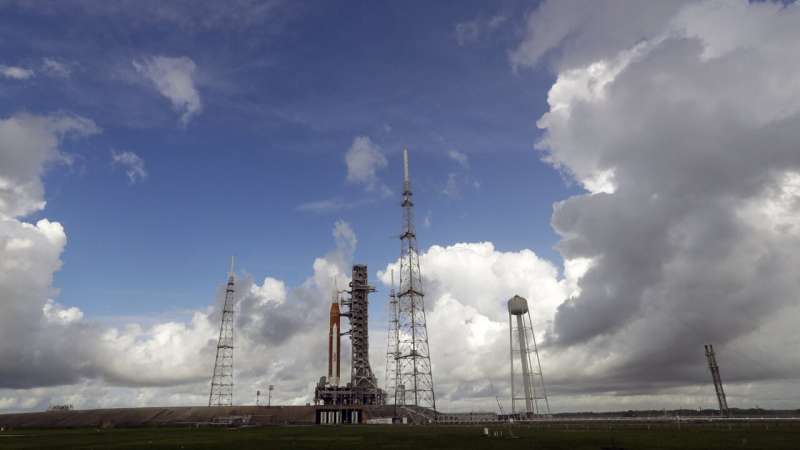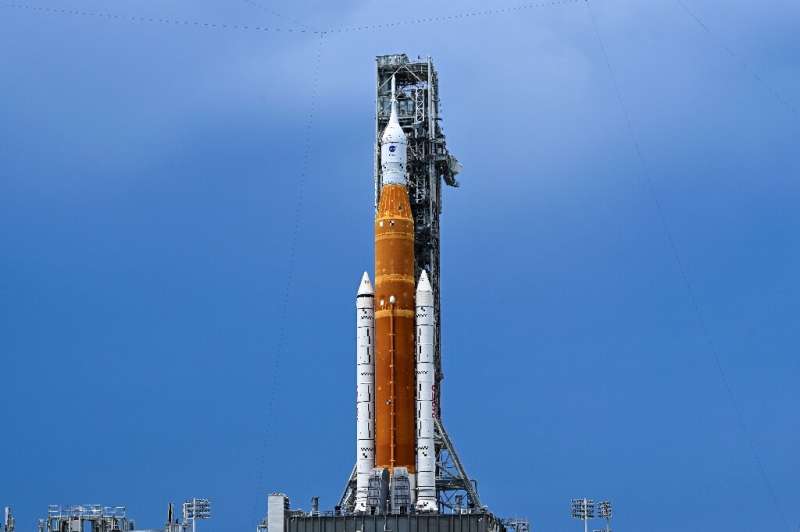
Copernical Team
Sols 3568-3570: That Was Close
 Coming in to work on the three-sol plan for the weekend, we were met with another set of stunning Images of the landscape around us. But for the Rover Planners the thing that really stood out is just how close we are to the very large rock (which you can see in the above image). Fortunately, Curiosity is safe and sound and ready for another set of exciting activities on Mars.
The first sol
Coming in to work on the three-sol plan for the weekend, we were met with another set of stunning Images of the landscape around us. But for the Rover Planners the thing that really stood out is just how close we are to the very large rock (which you can see in the above image). Fortunately, Curiosity is safe and sound and ready for another set of exciting activities on Mars.
The first sol DART team confirms orbit of targeted asteroid
 Using some of the world's most powerful telescopes, the DART investigation team last month completed a six-night observation campaign to confirm earlier calculations of the orbit of Dimorphos-DART's asteroid target-around its larger parent asteroid, Didymos, confirming where the asteroid is expected to be located at the time of impact. DART, which is the world's first attempt to change the speed
Using some of the world's most powerful telescopes, the DART investigation team last month completed a six-night observation campaign to confirm earlier calculations of the orbit of Dimorphos-DART's asteroid target-around its larger parent asteroid, Didymos, confirming where the asteroid is expected to be located at the time of impact. DART, which is the world's first attempt to change the speed Perseverance rover retrieves key rocky clues to Mars' geologic and water history
 In its first year exploring Jezero Crater on Mars, the Perseverance rover collected rock samples that scientists anticipate will provide a long-awaited timeline for the planet's geologic and water history.
They'll just have to wait a decade to find out the answer, until the samples can be scooped up from the surface and returned to Earth for dating in 2033.
The scientists are neverth
In its first year exploring Jezero Crater on Mars, the Perseverance rover collected rock samples that scientists anticipate will provide a long-awaited timeline for the planet's geologic and water history.
They'll just have to wait a decade to find out the answer, until the samples can be scooped up from the surface and returned to Earth for dating in 2033.
The scientists are neverth NS-23 to Fly 36 Payloads and 1000s of Club for the Future Postcards to Space
 On August 31, New Shepard's 23rd mission, a dedicated payloads flight, will fly 36 payloads from academia, research institutions, and students across the globe. The launch window opens at 8:30 AM CDT / 13:30 UTC from Launch Site One in West Texas.
This mission brings the total number of commercial payloads flown on the vehicle to more than 150. Two of the payloa
On August 31, New Shepard's 23rd mission, a dedicated payloads flight, will fly 36 payloads from academia, research institutions, and students across the globe. The launch window opens at 8:30 AM CDT / 13:30 UTC from Launch Site One in West Texas.
This mission brings the total number of commercial payloads flown on the vehicle to more than 150. Two of the payloa T-Mobile Takes Coverage Above and Beyond With SpaceX
 In a live event, T-Mobile (NASDAQ: TMUS) CEO and President Mike Sievert and SpaceX Chief Engineer Elon Musk announced Coverage Above and Beyond: a breakthrough new plan to bring cell phone connectivity everywhere. Leveraging Starlink, SpaceX's constellation of satellites in low Earth orbit, and T-Mobile's industry-leading wireless network, the Un-carrier plans to provide near complete coverage i
In a live event, T-Mobile (NASDAQ: TMUS) CEO and President Mike Sievert and SpaceX Chief Engineer Elon Musk announced Coverage Above and Beyond: a breakthrough new plan to bring cell phone connectivity everywhere. Leveraging Starlink, SpaceX's constellation of satellites in low Earth orbit, and T-Mobile's industry-leading wireless network, the Un-carrier plans to provide near complete coverage i AFRL's oscillating heat pipes are even cooler in space
 The Air Force Research Laboratory, or AFRL, has released the results from its Advanced Structurally Embedded Thermal Spreader Two, or ASETS-II. The AFRL experiment was 100% effective in testing the most recent version of the revolutionary Oscillating Heat Pipes, or OHPs, and the results of the more than 6,600 hours of on-orbit testing are being made available to the public.
"We now have a
The Air Force Research Laboratory, or AFRL, has released the results from its Advanced Structurally Embedded Thermal Spreader Two, or ASETS-II. The AFRL experiment was 100% effective in testing the most recent version of the revolutionary Oscillating Heat Pipes, or OHPs, and the results of the more than 6,600 hours of on-orbit testing are being made available to the public.
"We now have a Engine issue forces NASA to scrub launch of giant Moon rocket
 NASA called off a test flight on Monday of its largest-ever rocket in a setback to the ambitious program to send humans back to the Moon and eventually to Mars.
"We don't launch until it's right," NASA administrator Bill Nelson said after an engine temperature issue forced liftoff from Kennedy Space Center to be scrubbed.
"This is a very complicated machine," Nelson said. "You don't want
NASA called off a test flight on Monday of its largest-ever rocket in a setback to the ambitious program to send humans back to the Moon and eventually to Mars.
"We don't launch until it's right," NASA administrator Bill Nelson said after an engine temperature issue forced liftoff from Kennedy Space Center to be scrubbed.
"This is a very complicated machine," Nelson said. "You don't want Fuel leak interrupts launch countdown of NASA moon rocket (Update)

NASA began fueling its new moon rocket early Monday for liftoff on a test flight to put a crew capsule into lunar orbit for the first time in 50 years.
Thunderstorms delayed the fueling operation by an hour. The threat of lightning diminished enough to allow the launch team to proceed with loading the rocket's tanks.
NASA fuels moon rocket for liftoff on 1st test flight

NASA began fueling its new moon rocket early Monday for liftoff on a test flight to put a crew capsule into lunar orbit for the first time in 50 years.
Thunderstorms delayed the fueling operation by an hour. The threat of lightning diminished enough to allow the launch team to proceed with loading the rocket's tanks.
NASA shoots for the Moon, on its way to Mars

NASA's most powerful rocket yet is set to blast off Monday on the maiden voyage of a mission to take humans back to the Moon, and eventually to Mars.
Fifty years after the last Apollo mission, the space program called Artemis is to get under way with the blast off of the uncrewed 322-foot (98-meter) Space Launch System (SLS) rocket at 8:33 am (1233 GMT) from the Kennedy Space Center in Florida.
